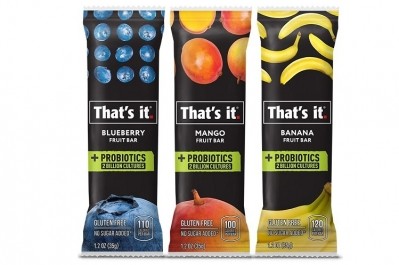FROM THE EDITOR'S DESK
Marketers making microbiome claims should take lesson from ORAC debacle

There is no question that research into the microbiome has been exploding. From the early days of recommendations for a certain amount of dietary fiber intake to the present, when the metabolites of individual bacterial strains under different conditions and with different inputs are being elucidated, much has been learned in the past few decades.
It has been a revolution, in fact. Really no physical process or disease condition is now looked at without at least a passing reference to the interaction with the various microbiomes of the body—those of the gut, the mouth, the skin, the nasal cavities, etc.
Data on communities, and individual strains
There were missteps, as with the apparently too-early announcement of the discovery of certain ‘enterotypes,’ or broad categories into which human microbiomes could be placed. Nevertheless, a great deal has been learned about how different community makeups correspond to certain disease conditions. The guts of obese people look different from those of subjects of normal weight, for example.
These have been found even to correspond with certain states of mind. Anxious mice have a characteristic microbiome profile, and transplanting that into otherwise placid mice can make them anxious, too. Researchers are now looking at the relation of the microbiome to neurodegenerative conditions as well.
And different strains have been identified that have distinct properties. One has been found to specifically support a healthy oral microbiome. Another has been researched for its ability to selectively consume uric acid in a way that could benefit consumers with compromised kidney function. There are many other examples.
So putting that all together, one could say that research into the microbiome is one of the most exciting aspects of modern nutritional science. It offers potential benefits that could possibly dwarf those of other nutritional interventions.
Stretching the science
The problem, as I see it, is how that information might then used in the marketing of nutritional products. Recently some ingredients that are neither probiotics nor what most would consider prebiotics have started to make claims about their ability to cause shifts in the microbiome. These include some polyphenolic ingredients and supplements based on other ingredients such as bacteriophages.
There is some research backing for this. After all, for some hard to absorb ingredients, such as some highly tannic ingredients, little of the purported bioactive is absorbed in the blood stream. The lion’s share remains in the gut to either be fermented or excreted. It may turn out that the metabolites arising form this process will be found to be more important that the bioactives themselves.
But on the other hand, anything you swallow is going to affect your microbiome in one way or another. And human beings have been eating all sorts of things through the history of the species and we have survived, so it would seem that the microbiome of an omnivore is naturally set up to handle many different inputs.
Fiber guidance
FDA seemed to be addressing this confusion when it issued its guidance in 2016 on the definition of dietary fiber. With so many purified fiber-type ingredients on the market, including some controversial ones, it was becoming confusing for consumers to pick through the claims.
Marketers of prebiotic ingredients that didn’t make FDA’s initial cut for the fiber definition have been stepping up to the plate to provide scientific dossiers to the agency backing their claims. At least one high profile ingredient—inulin—has subsequently been admitted through this process.
So there is some scientific heft to the claims made for these ingredients. And there are reams of evidence for the actions of specific probiotic strains. But what about all of the food and beverage products that are now slapping ‘probiotic’ or ‘prebiotic’ on the labels? At last year’s Expo West trade show, it seemed as if these terms had become the new fad, similar to the ‘free from’ craze of a few years ago.
Remember ORAC values?
There is a precedent to the overuse of a term. When the antioxidant activity of some naturally occurring compounds first came to the popular consciousness more than a decade ago, it spawned a flurry of marketing and product development activity worthy of a bee hive. The search was on for the highest ORAC values, stuff that would sizzle on labels and perhaps literally in the body. The end result? The United States Department of Agriculture shuttered its ORAC value database, and the term has disappeared from marketing materials.
Antioxidant activity is still a valid attribute of an ingredient, but no longer figures in to what can be said about it. With all of the microbiome mentions being tossed around, are prebiotic and probiotic claims about the head down the same path?
In order to forestall this doleful development, the industry ought to stay vigilant on matching claims of microbiome-affecting activity with good science (which is good practice for any sort of ingredient). And good science in this realm ought to be able to answer these basic questions and to be transparent about what those answers are:
- Can the experiment detect differences that matter?
- Does the study show causation or just correlation?
- What is the mechanism?
- How much does the experiment reflect reality?
- And, could anything else explain the results?
















